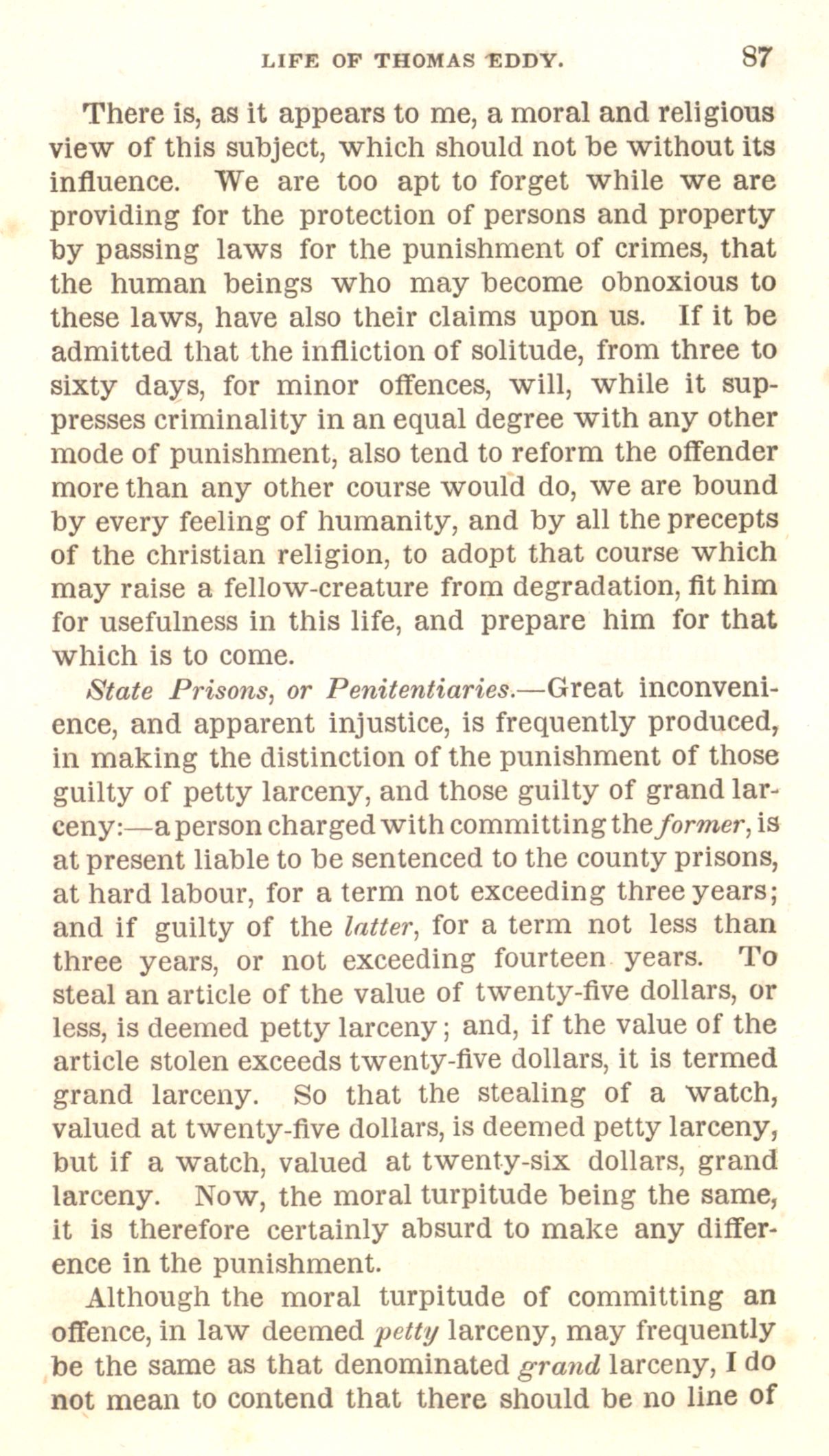There is, as it appears to me, a moral and religious
view of this
subject, which should not be without its
influence. We are too apt
to forget while we are
providing for the protection of persons and
property
by passing laws for the punishment of crimes, that
the human beings who may become obnoxious to
these laws, have also
their claims upon us. If it be
admitted that the infliction of
solitude, from three to
sixty days, for minor offences, will, while
it sup-
presses criminality in an equal degree with any other
mode of punishment, also tend to reform the offender
more than any
other course would do, we are bound
by every feeling of humanity,
and by all the precepts
of the christian religion, to adopt that
course which
may raise a fellow-creature from degradation, fit
him
for usefulness in this life, and prepare him for that
which is to come.
State Prisons, or Penitentiaries.—Great
inconveni-
ence, and apparent injustice, is frequently
produced,
in making the distinction of the punishment of those
guilty of petty larceny, and those guilty of grand lar-
ceny:—a
person charged with committing the former,
is
at present liable to be sentenced to the county prisons,
at
hard labour, for a term not exceeding three years;
and if guilty of
the latter, for a term not less than
three years, or not exceeding fourteen years. To
steal an article
of the value of twenty-five dollars, or
less, is deemed petty
larceny; and, if the value of the
article stolen exceeds
twenty-five dollars, it is termed
grand larceny. So that the
stealing of a watch,
valued at twenty-five dollars, is deemed petty
larceny,
but if a watch, valued at twenty-six dollars, grand
larceny. Now, the moral turpitude being the same,
it is therefore
certainly absurd to make any differ-
ence in the punishment.
Although the moral turpitude of committing an
offence, in law deemed
petty larceny, may frequently
be the
same as that denominated grand larceny, I
do
not mean to contend that there should be no line of

